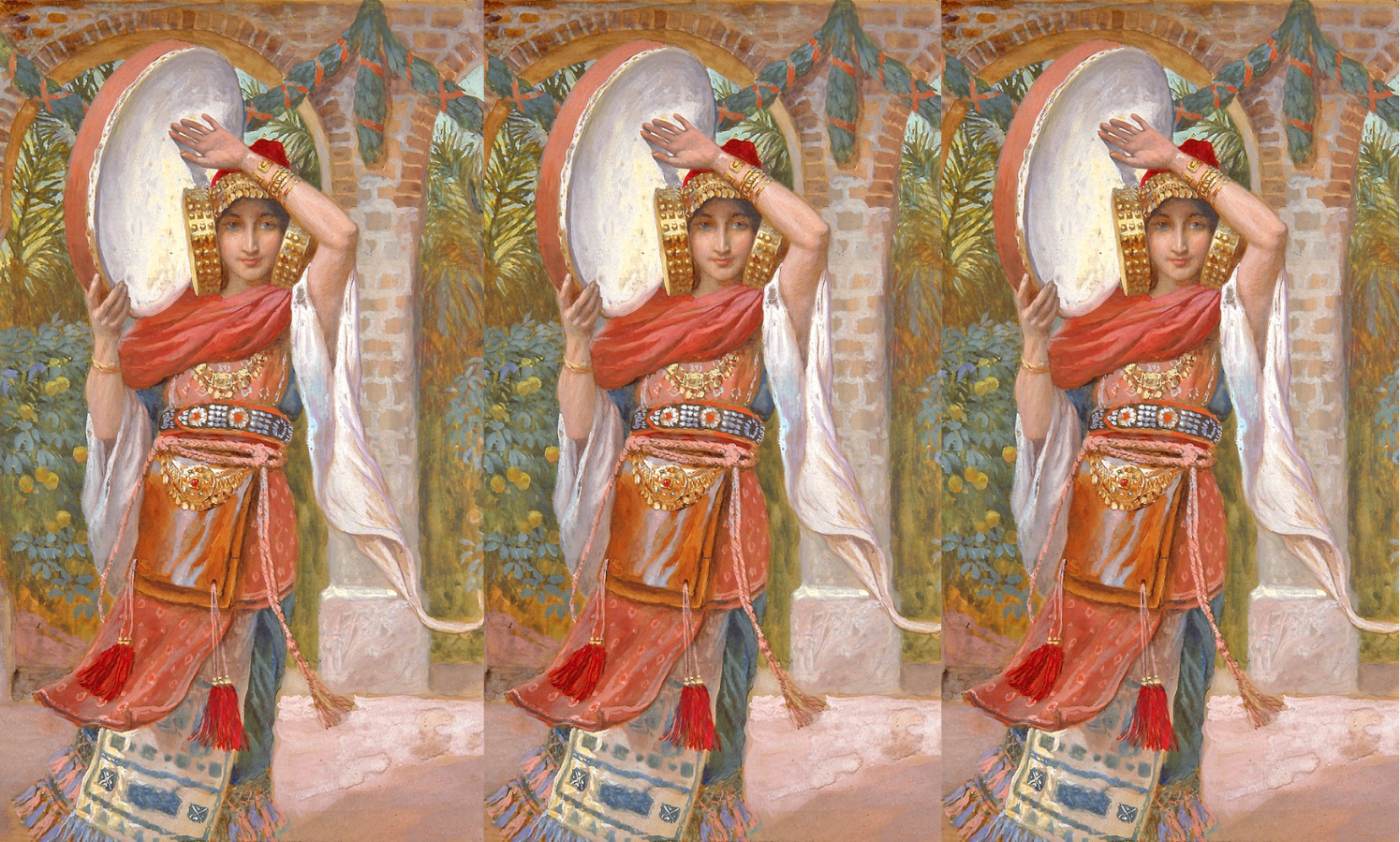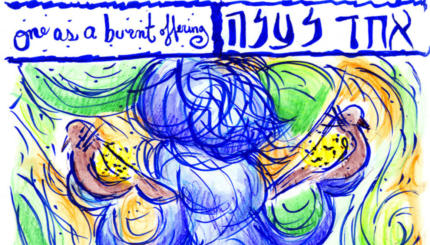The story of this unnamed woman appears near the end of her father’s story (see Judges 11:1–12:7). Its position, as well as the events that it narrates, suggests that it functions primarily, though not necessarily solely, as a further explication of the character of her father. It is one of the most enigmatic stories in the Hebrew Bible.
The woman’s father, Jephthah, has a rather unconventional background. His mother is a prostitute; his father is identified as Gilead. But since Gilead also names the region in Transjordan from which Jephthah comes, the text may be implying that any of the men of Gilead could be Jephthah’s father. This questionable parentage leads to Jephthah’s being driven away from his home by his kinsmen. He becomes an outlaw and presumably builds up a reputation as a fighter.
When his people are threatened militarily by the Ammonites, they appeal to Jephthah to be their commander, Jephthah agrees, being enticed by the promise that he will become their overall leader if he is victorious. But before going into battle, he seeks a guarantee of success by vowing to God that if victory is granted to him, he will sacrifice to God “whoever [whatever] comes out” of his house first on his return from the fight (Judges 11:31).
The ensuing conflict proves victorious for Jephthah and his forces. The rejoicing is short-lived, however, for on the return to his house it is his daughter that he sees coming out to meet him. But while Jephthah bemoans the fate to which his vow has brought him, his daughter merely affirms that he must do what he has vowed to do. She asks only that she be allowed a two-month reprieve so as to spend time with her women friends on the mountains, mourning her virginity. This request is granted. When she comes back to her father, he does with her “according to the vow he had made” (Judges 11:39).

Help us keep Jewish knowledge accessible to millions of people around the world.
Your donation to My Jewish Learning fuels endless journeys of Jewish discovery. With your help, My Jewish Learning can continue to provide nonstop opportunities for learning, connection and growth.
Questions and Critiques
The episode involving Jephthah’s daughter, partly because of its very brevity, generates numerous questions. Readers want to know why Jephthah makes such a vow. The text does not offer any hints, such as doubts about his chances for military success. Does the spirit of God actually move him to the pronouncement of the vow? And in making the vow, does he not know that it was customary in Israel for women to come out and greet with song and dance victorious male warriors upon their return from battle (compare Exodus 15:19–21; 1 Samuel 18:6–7) and that it is quite likely that his daughter will also follow this custom? Or does he think that an animal will be first out of his house? (Animals were often stabled in a small room inside, and quite near the entrance of, the typical Israelite house. And animals were a common object of sacrifice in ancient Israel.)
Another question concerns whether Jephthah’s daughter has prior knowledge of her father’s vow before she steps out of the house. The text suggests that Jephthah’s vow was made in their hometown of Mizpah; if pronounced publicly, presumably she would have heard it. Perhaps that was Jephthah’s intention—that she hear it and so take warning not to come out of the house first. But even if the vow was spoken in private, it is still conceivable that word could have gotten back to the daughter. And yet if the daughter did know, one wonders why she went out to greet him.
Just as troubling as the daughter’s apparent complicity is that of others. We wonder why no one—not even God—intervenes. In the narrative of Abraham’s near-sacrifice of his son, Isaac, God sends an angel to prevent the killing. That sacrifice, however, was God’s idea in the first place (Gen 22:1–14). And why do the people of the community not countermand the vow’s fulfillment? Why do the women friends of the daughter not convince her to run away and so escape her doom? And where is the daughter’s mother? Why is she not even mentioned in this story, much less presented as an advocate for her daughter?
Another ambiguity of the narrative concerns Judges 11:34–40, the daughter’s actual fate. The text does not explicitly state that Jephthah actually kills her. Perhaps he merely offers her up to the service of God; presumably she would have then gone to work for a lifetime in a sanctuary dedicated to God. In that case, the lamenting done by both father and daughter would have concerned the loss for the daughter of the normative Israelite roles of wife and mother (a tragedy for Jephthah, too, since she is his only child and, without her children, his patrimony will most likely be lost forever).
Finally, what is the function of this story in the biblical text? Some suggest that it is meant to point up the rash and foolish behavior of Jephthah. But his unconscionable behavior would also have been a sign of Israel’s depravity and thus an argument for instituting monarchical rule, presumably a more stable and upright form of government than what is currently in place.
This message is here mediated primarily through the victimization of a woman. Women’s lives and reproductive potential were essential for community and family survival. The loss of the daughter perhaps represents, in dramatic form, the dangers (amid apparent success) of the leadership of the judges. As a potential mother, the daughter represents the future for family and community. Her father’s shortsightedness signifies the chaos of pre-monarchic life.
Despite the possibilities of comprehending the narrative as part of the propaganda of the Book of Judges, the story of Jephthah’s daughter remains enigmatic and disturbing to today’s readers. Indeed, this tale of a nameless young woman, with scarcely a voice of her own and with her violent fate precipitated and carried out by her own father, is surely one of the most horrifying tales in the whole Bible.
Reprinted from the Shalvi/Hyman Encyclopedia of Jewish Women with permission of the author and the Jewish Women’s Archive.



